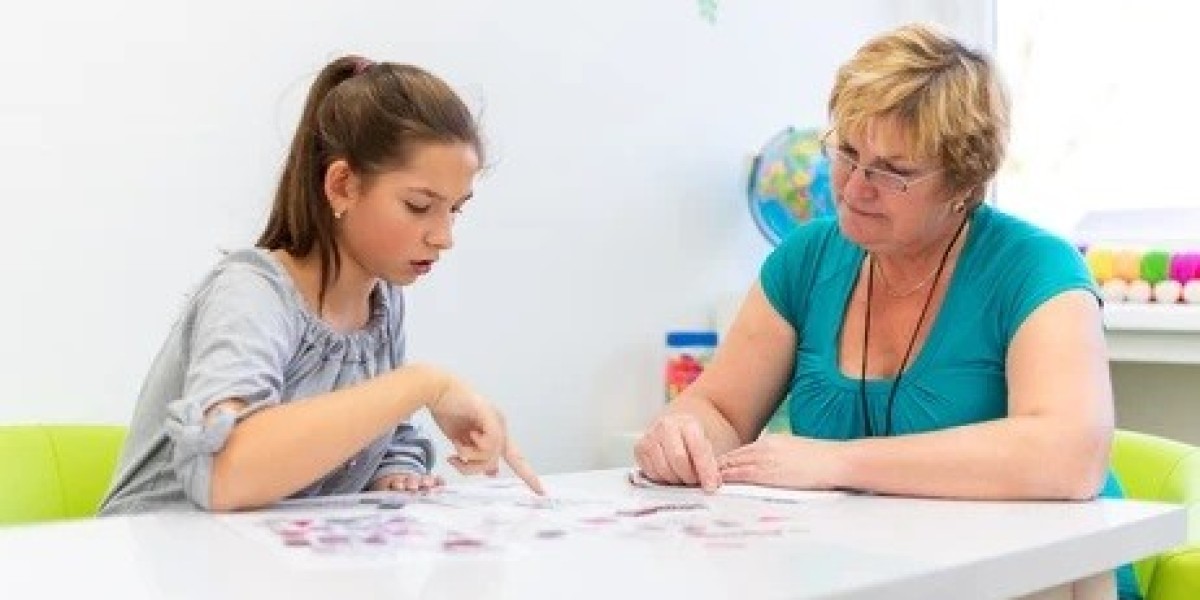Growth up in the modern world brings special emotional challenges to children and adolescents alike — from school pressures and social phobia to technology distractions and post-pandemic anxiety. Increasing numbers of parents in Toronto are looking to structured, evidence-based systems to assist their children in better meeting these challenges. Amongst the very best tools is CBT Therapy Toronto, which is sometimes augmented with behavioural consultation in order to offer concrete, tailored strategies for emotional and behavioural development.
Cognitive Behavioural Therapy (CBT) is a research-backed psychological intervention proven to help young people identify, challenge, and reshape unhelpful thinking patterns. When delivered within a behavioural consultation framework, it bridges the gap between therapy sessions and real-world experiences — empowering children and teens to apply emotional regulation skills at home, school, and in social settings.
In this article, we discuss how CBT therapy Toronto and behavioural consultation combine to enhance resilience, self-awareness, and long-term emotional health in children and teenagers.
What Is Behavioural Consultation for Children and Teens?
Behavioural consultation is a team, problem-solving approach that involves therapists, behaviour consultants, parents, and educators working together to resolve particular emotional or behavioural challenges for children and adolescents. The emphasis is on identifying the function of the behaviour — why it is occurring, what is inducing it, and what is sustaining it — so that effective and long-lasting strategies can be developed.
The role of a behaviour consultant is pivotal in the process. The consultant evaluates the environment of the child, determines behavioural patterns, and teaches caregivers to respond in a manner that promotes positive change. An example would be if a teenager consistently avoids attending school because of anxiety; the consultant could collaborate with the family to create exposure step-by-step plans, reinforce coping skills, and undermine avoidance patterns.
This strategy promotes consistency between home, school, and therapy environments — a major determinant of long-term behavioural and emotional control.
The Function of CBT Therapy in Behavioural Consultation
At the centre of behavioural consultation is a basic but powerful reality: thoughts, feelings, and actions are closely interwoven. CBT therapy Toronto informs young clients about this linkage by promoting them to notice how their way of thinking impacts their feelings and actions.
For example:
A child who believes, "Everyone will laugh at me if I make a mistake," will have lots of anxiety and will avoid class participation.
Using CBT, they learn to challenge the thought ("Everyone makes mistakes sometimes") and gradually develop the confidence to participate in spite of fear.
By combining CBT with behavioural consultation, the behaviour consultant and therapist can coordinate strategies — so that awareness of emotions, cognitive restructuring, and skill-building are all happening at the same time in all settings.
This synergy has quantifiable outcomes, enhancing not only a child's ability to control emotions but also their scholarly performance, social skills, and self-image.
Why CBT Therapy in Toronto Is Particularly Effective for Children
Toronto's multicultural social and cultural setting presents opportunities as well as challenges for youths. Adolescents and children can experience stressors in the form of cultural identity, schooling rivalry, or social acceptance. CBT therapy Toronto is unique in that it's flexible, versatile, and evidence-based — fitting perfectly for Toronto's multicultural populace.
Trained CBT therapists can adapt sessions to accommodate every client's culture and level of development. Children below a certain age may utilize stories, pictures, or games to communicate thoughts, while adolescents typically respond well to journaling, role-playing, and computer applications.
This adaptation guarantees that therapy is interactive and meaningful even for resistant patients.
Research by the Canadian Psychological Association identifies CBT as the most effective treatment for childhood and adolescent depression, anxiety, and behavioural disorders — conditions that can persist into adulthood if left untreated. Not only does CBT decrease symptoms, but also protective factors such as resilience, adaptability, and positive self-concept.
Principal Advantages of Behavioural Consultation with CBT Therapy
Merging behaviour consultation and CBT therapy Toronto creates an integrated support program for emotional and behavioural development. The primary advantages are:
1. Greater Emotional Control
Youth and children are taught to recognize emotional triggers and substitute reckless responses with coping techniques. Skills such as mindfulness, challenging thinking, and solving problems become daily coping skills.
2. Greater Self-Awareness
Through CBT exercises, adolescents identify the connection between thoughts and emotions — allowing them to stop, think, and make healthier decisions.
3. Increased Parent–Child Collaboration
A behaviour consultant teaches parents to better read behavioural signals and apply consistent reinforcement methods at home, enhancing emotional safety and trust.
4. Enhanced Academic and Social Functioning
As confidence and emotional management increase, so does academic and social performance. Teachers usually see improved concentration, decreased disruption, and improved interactions with peers.
5. Long-Term Resilience
CBT teaches children and adolescents skills that last a lifetime to deal with stress, ambiguity, and adversity — the key ingredients for resilience and adult mental well-being.
How Behavioural Consultants and CBT Therapists Work Together
Behavioural consultation is not a cookie-cutter service, it's a collaboration. The behaviour consultant works with psychotherapists, teachers, and families to develop individualized plans focused on specific goals. This is how this collaboration usually works:
Assessment Phase:
The consultant makes observations and interviews to determine behavioural triggers, emotional patterns, and contextual factors.
Collaborative Goal Setting:
Goals may be reducing anxiety-driven avoidance, controlling anger, enhancing focus, or improving social communication.
Intervention Design:
The therapist incorporates CBT concepts — exposure exercises, thought logs, or cognitive restructuring — into daily life.
Parent and Teacher Coaching:
Consultants train parents and educators to build in desired behaviors and deliver repeated feedback.
Progress Monitoring and Adjustment:
Regular check-ins guarantee that the strategies continue to be effective as the child develops and situations change.
This structured process guarantees that CBT Toronto principles are reinforced in all settings, and progress is sustainable and quantifiable.
Shared Problems Treated by Behavioural Consultation and CBT
Behavioural consultation using CBT methods effectively treats a variety of problems experienced by adolescents and children. These include:
- Anxiety and Worry Patterns (e.g., school avoidance, test anxiety, social anxieties)
- Depression and Low Motivation
- Anger and Emotional Dysregulation
- Attention-Deficit/Hyperactivity Disorder (ADHD)
- Oppositional Defiant Behaviour
- Autism Spectrum-Related Emotional Regulation Difficulty
- Peer and Social Communication Problems
Every problem needs to be treated on an individual basis. The CBT therapist and behaviour consultant collaborate closely so interventions are both developmentally sensitive and empathic rather than aversive or controlling.
Practical Strategies Applied in CBT Therapy for Youth
Applied to young clients, CBT therapy Toronto integrates active techniques that are both instructional and motivating. Some frequently applied interventions include:
Cognitive Restructuring: Having children learn to challenge "all-or-nothing" or catastrophic thinking.
Exposure Therapy: Incremental confrontation with fears in a safe, supportive manner.
Behavioural Activation: Fostering engagement in pleasant activities to oppose depressive symptoms.
Relaxation and Mindfulness Training: Developing systematic self-regulation using breathing, grounding, and body awareness.
Social Skills Training: Training in assertive communication, empathy, and perspective-taking.
These exercises are also consolidated at home via behaviour plans created with the behaviour consultant, promoting continuous skill-building outside of treatment sessions.
The Role of Parents and Caregivers
Parent cooperation is key to the success of both CBT and behaviour consultation. A behaviour consultant doesn't work with the child alone — they teach the parents to become co-therapists in the home.
Parents are taught to:
- Reinforce positive behavior with praise and consistency
- Practice calm, non-reactive communication
- Model problem-solving and regulation of emotions
- Identify early distress signs and respond constructively
This collaboration makes therapy a family-wide process of growth, solidifying relationships and minimizing household conflict.
Real-Life Example: From Meltdowns to Mindfulness
Meet 10-year-old Ethan (name changed), who had anger outbursts and meltdowns at school. His parents turned to a behaviour consultant who worked with a CBT therapist in Toronto.
Together, they created a plan that incorporated:
- CBT emotion-mapping exercises to assist Ethan in identifying feelings prior to escalation
- Breathing strategies and coping cards for self-regulation
- Positive reinforcement at home on a consistent basis
At 10 weeks, Ethan improved significantly — fewer meltdowns, improved peer interactions, and more confidence in frustration management. His example illustrates how the inclusion of CBT therapy Toronto within behavioural consultation can turn emotional disarray into self-regulation and strength.
Why Early Intervention Matters
Studies repeatedly demonstrate that early behavioral and cognitive intervention decreases the risk of chronic mental illness in adulthood. When emotional regulation skills are introduced early, children have more neural flexibility — in other words, they're better able to manage stress and change.
A behavior consultant working in tandem with CBT therapists ensures that emotional awareness and coping skills are introduced at the appropriate level of development, laying the groundwork for a lifetime of mental health.
How to Select the Right CBT Therapist or Behaviour Consultant in Toronto
When searching for CBT therapy Toronto, parents should seek out professionals who:
- Are certified with the College of Registered Psychotherapists of Ontario (CRPO) or other professional organizations
- Possess specialized training in child and adolescent psychology
- Work in close collaboration with schools and families
- Apply evidence-based methods appropriate to developmental stages
- Provide ongoing follow-up and progress monitoring
Most clinics in Toronto provide hybrid models of having behaviour consultants and CBT-trained psychotherapists working together side by side, which provides continuity and coordination of care.
Conclusion: Building Resilient Futures Through CBT and Behavioural Consultation
Young people confront a rapidly shifting emotional terrain, but with the right training, they can learn to navigate it with confidence and stability. Behavioural consultation combined with CBT therapy Toronto offers a very strong model for teaching young people about their emotions, for challenging unhelpful thoughts, and for building resilience that will last a lifetime.
By engaging with an experienced behaviour consultant and CBT therapist, families build a cohesive support network where emotional management becomes a common goal not only for therapy, but for life. Through this, they assist children in developing into emotionally smart, self-regulating, and resilient human beings who are able to succeed in today's world.







